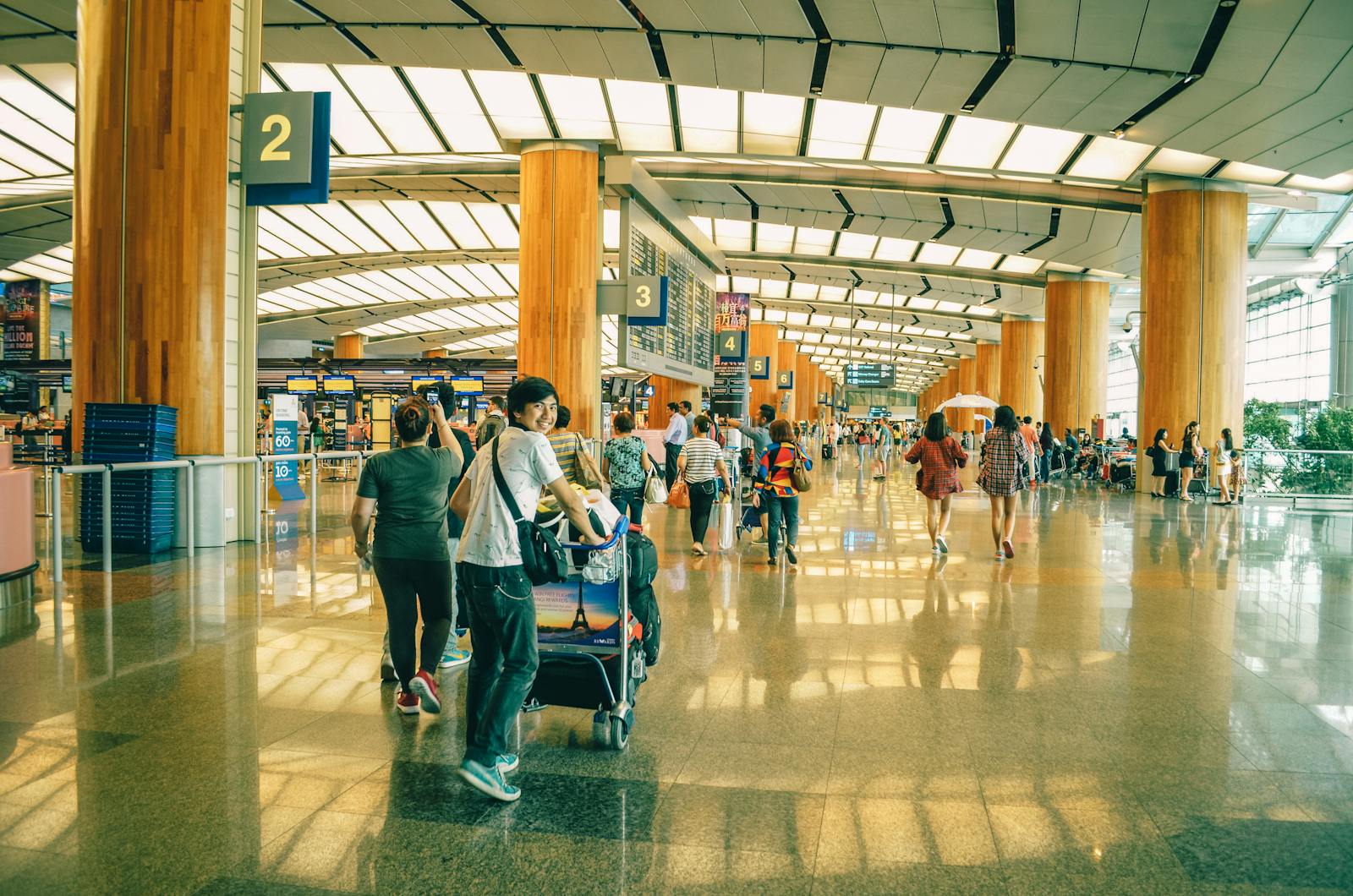A Guide to Help You Prepare for Your Student’s Arrival
Hundreds of families in New Brunswick have welcomed international students into their homes. Based on their experience and professional insight, here are some suggestions to help you prepare to host a student.

Welcoming Your Student
At AEI, we believe that the heart of our program lies in the people who make it so special. From the moment a student arrives, we want them to feel the warmth and genuine hospitality that New Brunswick is known for. That’s why we ask at least one family member to be present at the airport to not only greet the student but to help them feel truly welcomed and at home. We encourage you to make this arrival a memorable occasion—bring colourful signs, balloons, a small gift that symbolizes NB, to show your excitement and warmth.
Our commitment to creating a supportive and welcoming environment is a core part of the AEI experience. It’s the AEI difference: a community of caring people who genuinely invest in making every student feel like they belong from the very first moment they arrive.
Helping them Adjust in the First Few Days
Everyone will be excited when the student first arrives at your home. Many students will be eager to take in as much as possible. Show them around your home and where their room is, and introduce them to any family members who may not have been at the airport, including furry ones! Some students are jet-lagged and hungry when they arrive, so you should be ready with food and a place to rest.
The combination of excitement and adjusting to a new time zone can impact students differently. Remember to be patient with your student as they adjust to their unfamiliar environment. Try to put yourself in your student’s shoes and anticipate what they might feel when they wake up in an unfamiliar place the following day.
The more you help students with practical matters, the more at ease they will feel. Do not be afraid to explain simple things – even the small things in a different culture can be new and exciting.
Assisting with Culture Shock
International students often experience culture shock after their arrival. The experience is temporary; you can help them recover quickly with some understanding and guidance. However, being familiar with the four stages of culture shock is important.
- Honeymoon Phase: Students are excited about their new surroundings and experiences, and they start comparing Canada with their home country. Identifying similarities often helps students feel more comfortable.
- Shock Phase: As students notice the differences between Canada and their home country, they can feel disoriented. At this point, some students may even begin to feel homesick. They may not outwardly display “symptoms,” but students may get sleepier and seek more alone time away from their host family. It’s important to keep an open line of communication during this time and actively listen if the student wants to talk about their feelings.
- Recovery Phase: Students start to feel more relaxed, comfortable, and secure with their surroundings.
- Stability Phase: As students begin to enjoy their new way of life, they will become more confident and comfortable with their host families.
Adjusting to Daily Routines and Expectations
The first few weeks of the program can be difficult as everybody in the household learns how to adjust to a new routine. But this can also be an exciting time as you get to know more about your student. It is normal for there to be an adjustment period. Bringing a new person into your home is a big change for everyone involved. Host families and students often experience hesitation and confusion while they get to know each other. To navigate this tricky period, be clear and direct with the student and approach matters and questions with an open mind.
Mealtime
Food is often a significant source of potential complications. It’s typical for students to take a week or two for their appetite to adjust. An excellent way to help make their transition more manageable is to take a trip to the grocery store together, where they can point out some of their favourite foods.
House Rules
Another potential point of tension revolves around supervision. Students are expected to follow the house rules set out by their host families, which can often differ from what they are used to. It’s important to be clear with your expectations for a curfew and other liberties as soon as your student arrives. This ensures that everybody is on the same page and can prevent conflict in the future.

Guidelines for Student Travel and Permission Requirements
While we strongly encourage homestay families to showcase the beauty and culture of their own region to the student, we understand that some students may wish to travel beyond the local area. We believe that getting involved in local activities, attending AEI’s monthly events, and participating in school clubs and extra-curriculars are fantastic ways for students to connect with their new community. That said, we also understand that travel can be an enriching experience for some.
If your student plans to travel outside the province or with someone other than their host family, it’s important they understand what is required. In these cases, the student’s parents must provide written permission. Additionally, the student will need someone to act as their custodian during the trip, and we ask that the program release form be completed to ensure the necessary legal requirements are met.
If you plan to travel with your student for more than one day, we also ask that you notify AEI. This helps us keep accurate and updated contact information on file, ensuring we can reach you in case of an emergency.
Our priority is always the safety and well-being of the students, and clear communication helps us support them throughout their time here.

Important End-of-School-Year Considerations
Around June 30th each year, international students will officially be considered outside of our program, and AEI no longer be providing support after this date. This means that students will not have access to the program’s medical coverage unless they have made separate arrangements.
While the idea of having your student stay for an extra week or two may be appealing, it’s important to carefully consider the lack of medical coverage during that time. Without proper medical insurance in place, both the student and their host family may face unforeseen risks, and we strongly encourage you to plan accordingly.
More Tips for A Successful Experience
Hosting an international student can be an incredibly rewarding experience for your whole family. There is a reason why many of our host families continue to host students year after year.
Here are a few additional tips to keep in mind when hosting a student that will make the experience as pleasant and smooth as possible:
- Welcome your student into your home with care and understanding.
- Remember that some students may be homesick upon arrival and need a compassionate response.
- Accept your student as part of your family. While it may initially feel uncomfortable, you should still include them in all normal family activities.
- Talk to your student regularly. Show interest in their school projects, activities, and hobbies.
- Try to resolve any problems through proactive communication and understanding.
- Spend recreational time with your student.
- Encourage your student to make friends at school and in their neighbourhood. School and community activities are an essential part of your student’s experience.
- Provide a reasonable amount of transportation for your student to attend school and extra-curricular activities.
- Monitor your student’s progress at school and offer assistance or guidance when possible.
- Stay connected with your Homestay Coordinator.
- Try to give your student time, attention, and love. Remember, you are not just getting a houseguest; you’re gaining a family member.
Interested in Hosting an International Student?
Fill out the form below to connect with a member of the AEI team to learn more.
NEWSLETTER